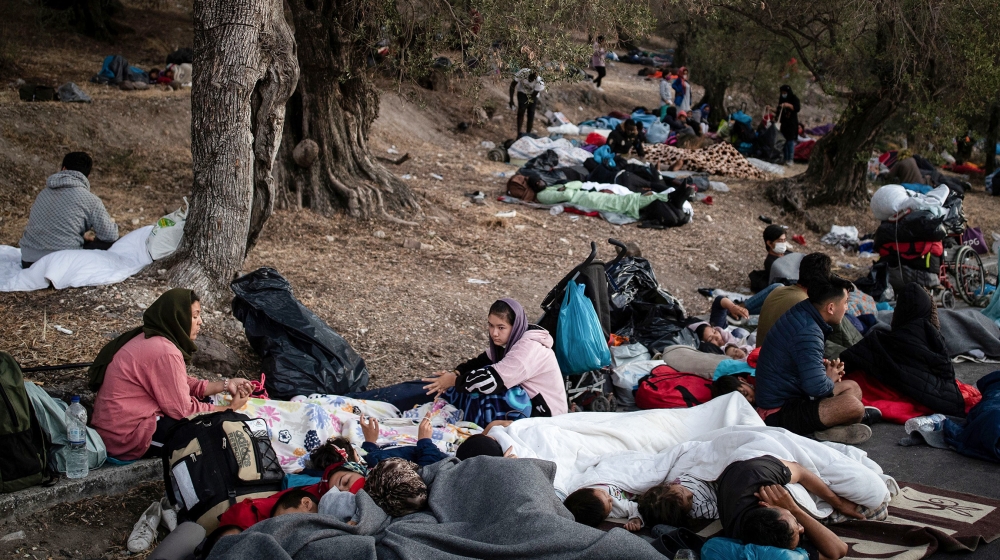Thousands of refugees slept rough on the Greek island of Lesbos for a second night after a fire razed the country's largest camp to the ground, sending crowds fleeing but with nowhere to go.
Families slept on roadsides, in supermarket parking lots and in fields across the island, which was at the forefront of the European migrant crisis in 2015-2016.
There had been about 13,000 people in the camp.
Tuesday night's inferno at Moria sent thousands rushing to save their lives, reducing the camp - notorious for its poor living conditions - to a mass of smouldering steel and melted tent tarpaulin.
A second fire broke out on Wednesday night, destroying what little was left.
Desperate families, many with young children, spent Wednesday night in the open, some without tents or basic bedding. Some of the homeless trekked to the nearest villages for water and other supplies.
Police reinforcements were brought in to prevent refugees and migrants from reaching the island's main town of Mytilene, confining them to fields and roadsides.
Eight-year-old Congolese girl Valencia, who was barefoot, gestured to a Reuters reporter that she was hungry and asked for a biscuit. "Our home burned, my shoes burned, we don't have food, no water."
Both she and her mother Natzy Malala, 30, who has a newborn, slept on the side of the road.
"There is no food, no milk for the baby," Natzy Malala said.
Officials have declared a four-month emergency on Lesbos and flown in additional riot police.
The migration ministry said it would take "all necessary steps" to ensure that vulnerable groups and families had shelter, but these were expected to be met with stiff resistance from locals.
Authorities were already at loggerheads with locals over plans to replace Moria with a closed reception centre, which Lesbos residents fear would mean thousands of asylum seekers remaining permanently.
Municipalities were at odds over the handling of the situation, said Costas Moutzouris, governor of the Northern Aegean. "There is no decision. It's up in the air," he told Reuters.
The migration ministry said a ferry had been sent to accommodate hundreds of people ahead of the expected arrival of European Commission Vice-President Margaritis Schinas to inspect conditions on the island.
Al Jazeera's John Psaropoulos, reporting from Lesbos, said the situation was dire for the government.
"It is hard to see how the government is going to settle so many thousands of [refugees] who have been left shelterless and homeless.
"We are told that three ships are under way to house thousands of the most vulnerable people with small children, but that will probably still leave some thousands uncared. There is a huge problem because the municipality doesn't have the infrastructure to provide for them."
A government official who declined to be named said that sheltering refugees and migrants on boats was not a safe solution and was sending the wrong message to migrants who would want to leave Lesbos.
The fire brought fresh tragedy to the refugees who had been living in Moria. The camp was under quarantine restrictions due to an outbreak of COVID-19 last week.
Authorities are investigating whether Tuesday night's fires were started deliberately after COVID-19 tests led to the isolation of 35 refugees.
SOURCE: Al Jazeera and news agencies
World - Latest - Google News
September 10, 2020 at 04:59PM
https://ift.tt/3iiwi6e
Thousands of refugees sleep rough, without food, after Moria fire - Aljazeera.com
World - Latest - Google News
https://ift.tt/2SeTG7d
https://ift.tt/35oCZy1
Bagikan Berita Ini
















0 Response to "Thousands of refugees sleep rough, without food, after Moria fire - Aljazeera.com"
Post a Comment